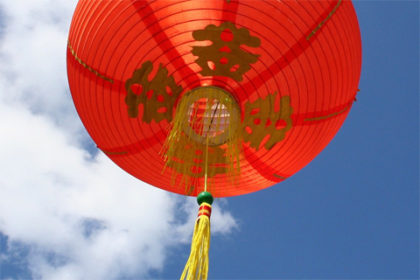China announced facilitations in trademark act, especially in order to be able to take action against unauthorized trademark registrations. On November 1, 2019, the trademark law reform will come into force. The law against unfair competition has already been reformed with interesting features.
 China sees itself in the policy of liberalization and facilitation of investment on the way to a high level. According to the Chinese People’s Congress, the National People’s Congress Standing Committee (NPCSC), China creates improved mechanisms to promote foreign investment.
China sees itself in the policy of liberalization and facilitation of investment on the way to a high level. According to the Chinese People’s Congress, the National People’s Congress Standing Committee (NPCSC), China creates improved mechanisms to promote foreign investment.
In this spirit, the meeting of the Standing Committee of the National People’s Congress on 23 April adopted a reform of the Trademark Act, announcing simplifications in order to be able to take action above all against unauthorised trademark registrations without the intention of using them – so-called trademark squatting.
Amendments to eight laws on “Improving the Business Environment” were passed by the People’s Congress and are due to come into force on 1 November 2019.
Trademark act reform in China
In practice, the trademark act reform that has been passed makes it easier to successfully protect trademarks in China:
The amendment to the Trademark Act [商标法] aims at punishing bad faith trademark registrations without intention of use, also known as “trademark squatting”. In order to prevent trademark squatting, the Chinese Trademark Office is instructed to refuse bad faith applications. In addition, trademark agencies are to be prohibited from filing such trademark applications for clients without the intention of using them (Art. 19).
Trademarks which have already been registered in bad faith are declared invalid (Art. 44), the People’s Congress has decided. How this can be realized in practice, you are invited to read hear: Trademark infringement in China: what to do?
Stricter penalties for infringements
The amendment also provides for stricter penalties for infringements. The People’s Congress provides for the following penalties:
- Authorisation of five-fold damages for “malicious” [恶意] trademark infringements (Art. 63);
- Increase of the maximum statutory compensation to RMB 5 million from RMB 3 million;
Authorisation of the courts
Equally interesting are the innovations foreseen for the courts.
With the trademark law reform the courts are to be authorized to order the destruction of objects with unjustifiably registered trademarks as well as the destruction of tools and materials used for the production of such objects. The courts are also to be empowered to sanction malicious filing of trademark disputes.
How this will look in practical implementation remains to be seen. Because the Chinese judgments are very diverse and contradictory. This is due to the very diverse court system in China. Besides the Supreme People’s Court there are Basic, Intermediate and Higher People’s Courts. And only some of the respective courts can decide in trademark and patent proceedings. (Read more under: New IP Court in China ).
Reform of law against unfair competition already in force
Another important area for the market environment in China has already entered into force and concerns the handling of trade secrets.
There are various revisions relating to the Act against Unfair Competition [反不正当竞争法]. The aim was to improve the possibilities of protecting a trade secret in China.
The People’s Congress has decided on the following changes:
- the definition of trade secrets has been amended to include “all commercial information” [商业信息], not just technical information and “business information” [经营信息].
Also there are interesting new features relating to protection of trade secrets:
- Two new types of embezzlement have been added to the Unfair Competition Act:
- the acquisition of trade secrets by “hacking” [电子入侵]
- “Incite, induce or assist others to “acquire, disclose, use or permit to others any trade secret” in violation of any confidentiality obligation.
- Also important: all companies and individuals – not just “entrepreneurs” [经营者] – should be subject to the prohibitions of the law on the misappropriation of trade secrets.
Another interesting feature of the practical approach against misappropriation of trade secrets is the reversal of the burden of proof: the burden of proof in civil proceedings for trade secrets is reversed if one party to the proceedings uses pretence (pursuant to Art. 32).
Penalties for infringements
The People’s Congress provides for the same penalties for violations of trade secrets as in the trademark law reform:
- fivefold damages for malicious infringement of trade secrets
- Increase of the maximum statutory compensation to RMB 5 million.
Do you also need support in enforcing your intellectual property rights?
Each case is considered individually and carefully by our lawyers, experienced in trademark and patent law, national and international law.

Sources:
Image:







Leave a Reply